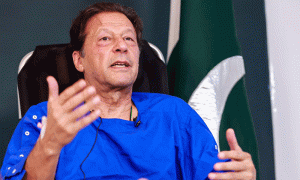
A daughter, A mother, A leader, The many facets of Mohtarma Banazir Bhutto
Homaira Latif
Leadership is about the strength of one’s convictions, the ability to endure the punches, and the energy to promote an idea.
—Benazir Bhutto
Benazir Bhutto, the Daughter of the East, had it all — the strength to stand firmly for what she believed in, the resilience to endure the many challenges she faced, and the energy to promote and pursue her purpose: to serve her people.
For many, she was not just a politician, but a symbol of resilience. She stood by what she learned at an early age from her father — the Bhutto legacy of loyalty, honour, and principles. A true trailblazer, Benazir was not only the first Muslim woman to become Prime Minister, but also a devoted mother, daughter, and leader — all in one.
Born into the influential Bhutto family, she had seen it all — from the luxurious life at 70 Clifton, to the harrowing conditions of jail cells, to years of exile far from her homeland.
At a very young age, she was already exposed to the corridors of power — whether during Bhutto’s visits to the USA while she studied at Harvard, or on a trip to India where she was a key witness to the historic Shimla Accord. Benazir shared her father’s dream of a democratic, progressive Pakistan.
She began her political journey to keep her father’s dream alive. As she herself wrote:
“I did not choose this life, it chose me.”
From a heartbroken daughter who slept with her father’s shirt under her pillow, she became the voice of resistance against General Zia’s dictatorship. Her father’s cause had become her own. She had promised herself that “the light of hope that he had kindled would be kept alive,” and she fulfilled that promise.
She was imprisoned in dark, dirty, gloomy jail cells. She lived from “suitcase to suitcase,” spending years in exile — yet she remained true to the Bhutto legacy. A daughter who kept her father’s vision and party alive, no matter how high the personal cost.
Benazir was the first head of government in human history to give birth while in office. The birth of her son, Bilawal, was, in her own words, “the happiest day” of her life. Yet even as a mother, she faced enormous challenges. The hardest of all was leaving her beloved children — Bakhtawar and Bilawal — with her sister, Sanam Bhutto, in London, while she returned to Pakistan to face false, politically motivated cases against her and her husband, Asif Ali Zardari.
She rose to those challenges, as she always did — with courage, determination, and grace — balancing political responsibilities with the demands of motherhood. That aspect of her personality inspired many, including the Prime Minister of New Zealand, who paid tribute to her in these words:
“Two things in history will not be contested about Benazir Bhutto — she was the first Muslim Prime Minister elected in an Islamic country when women in power were a rare thing. She was also the first to give birth while in office. The second and only other leader, almost 30 years later, was me.”
Benazir was the leader of the masses. Their hearts beat with her. She was progressive, visionary, and courageous. She not only advocated for women’s rights, but also took concrete steps to advance them. She worked for education, healthcare, and poverty reduction.
The Pakistan Peoples Party (PPP) was founded in 1967 with the slogan “Roti, Kapra, Makaan” — bread, clothing, and shelter. Benazir worked tirelessly toward achieving that goal during both her tenures as Prime Minister, brief though they were. She fought battles on many fronts, both domestic and international — with extremism being the most daunting.
Her unequivocal stand against extremism was bold — and she was willing to sacrifice everything to fight it. She had warned U.S. President George W. Bush long before that they were creating a “Frankenstein” by supporting radical Islamist groups.
“Despite threats of death, I will not acquiesce to tyranny, but rather lead the fight against it.”
And lead she did — with outstanding valour.
Benazir Bhutto cannot be understood in a single dimension. Her personality was multi-faceted.
As a daughter, she was honourable and conscientious, bravely crossing every barrier to keep a promise made to her father.
As a mother, she was empathetic to every child — not just her own, but across Pakistan and the world.
As a leader, she had a vision, a purpose, and the will to work for a progressive Pakistan.
That vision lives on in her son, Bilawal Bhutto, who — like his mother — did not choose this life; this life chose him.
Ah, the irony of fate.
“You can imprison a man, but not an idea.
You can exile a man, but not an idea.
You can kill a man, but not an idea.”
—Benazir Bhutto





